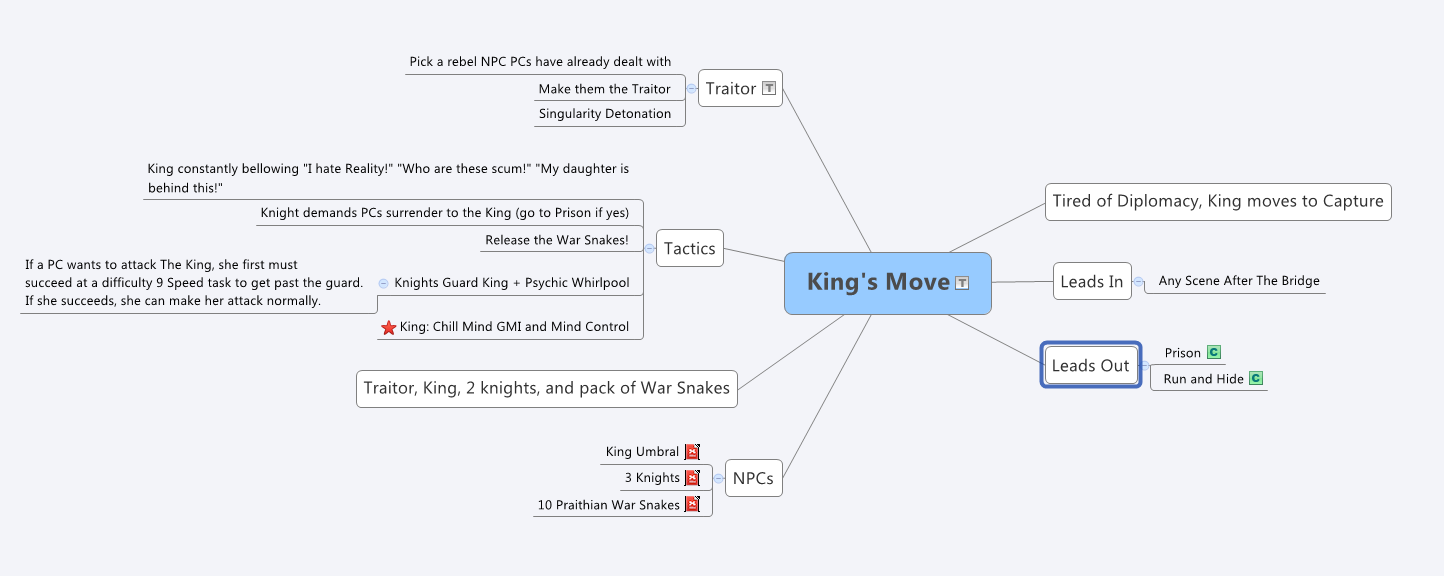Note, we'll return to gaming over the internet with a guest blog by Eric Lamoureux on Fantasy Grounds next post. But now, it's time for the Game Masters Roundtable of DOOM!
Our question comes from Marc Plourde:
There are many different skills that come together to make up a GM. The ability to think on the fly, knowledge of the rules, plotting, etc. What skill do you think is your weakest? What have you done to try and improve that skill? What advice do you have to offer others trying to improve that skill set?
I'd like to say I can't remember my weakest skill. But that's it, not remembering. Not remembering what I said last game. Not remembering the demon's special attacks. Not remembering what the heck I had planned for this evenings gaming.
Everyone has to deal with the issue of information explosion as a gamemaster, and what works for me might not be the solution for you.
My solutions revolve around lightweight tools, repetition, and avoiding the issue.
Lightweight Tools
I've known for a long time managing all this information is an issue for me, so I've tried a lot of tools. I've found is that if the tool takes too much effort to maintain, I'll drop it.
Tools I've tried and which work for a lot of people (maybe you!) are wikis, spreadsheets, vast notebooks, and databases. I Kickstarted Realm Works, found it impressive, and used it twice. These all turned out to be too heavy weight for me.
 Two lightweight tools I use are note cards and mind maps.
Two lightweight tools I use are note cards and mind maps.
A stack of note cards is sometimes called a Hipster PDA. I use note cards to remember to hit every player with the spotlight and bring back people, places, and things from previous adventures. They jog my memory just enough to keep the game going. Read all about it!
The other is mind-maps. Unless I'm playtesting an adventure I hope to publish, I keep everything in mind maps and run the game from there. XMind is a nice free mind mapper and that's what I use. When I do write for publication, I start with mind maps.
Repetition
Do the same thing over and over again and it become second nature. While you don't want to overdo it, a certain amount of repetition works for me. Not only does it help you remember things, it aids in world building. If the PCs meet the a new race every week, everything the PCs and the GM learned in the past isn't useful. If you mix in some races that reoccur, it builds your world and you master that new race.
Star Trek was known for the "planet of the week" model, but who remembers most of them? Who can forget the Borg?
Avoiding the Issue
My favorite problem solving method! I prefer to either run games with less mental footprint or to steal from simpler games and apply their rules to more complex games.
Take creature complexity. If you play D&D type games, you may have noticed 3.5 and Pathfinder have more complicated monsters than the new 5E versions of the same monster. And 13th Age has even simpler versions. The demon Vrock is a great example, with Pathfinder's version being almost double the word count of 5E's and 5E's almost double the word count of 13th Age's. Too bad Numenera doesn't have a Vrock.
13th Age gives us another interesting simplification of monster powers. Instead of remembering a bunch of optional powers (this power 3 times a day, this power if it doesn't use this other power, and so on), 13th Age uses the GM's attack dice to decide if a special power "procs." No deciding on the fly, or forgetting all about the special abilities until after the battle.
For example, the 13th Age Vrock has a filth-covered claw attack. If it hits with a natural even hit, it uses its demonic screech. The complexity has been pushed from the game table to the creature design. I like that.
If your favorite game is complex and you don't keep forgetting rules at the table, then play it and have fun! If you are playing a game where the complexity is getting in the way of your fun, you might want to take a look at simpler games.
The Game Masters’ Roundtable of Doom is a meeting of the minds of tabletop RPG bloggers and GMs. We endeavor to transcend a particular system or game and discuss topics that are relevant to GMs and players of all roleplaying games.
If you’d like to submit a topic for our future discussions, or if you’re a blogger who’d like to participate in the Game Master’s Roundtable of Doom, send an email to Lex Starwalker at gamemastersjourney@gmail.com.
The rest of the Roundtable has great things to say about their biggest issues GMing. Read on.
Marc Plourde – http://inspstrikes.blogspot.com/2015/05/nuts-bolts-31-game-masters-roundtable.html
James August Walls – http://ilive4crits.blogspot.com/2015/05/successfully-offing-your-favorite.html
Scott Robinson – http://strangeenc.blogspot.com/2015/05/encoding-improvisation.html
Lex Starwalker – http://www.starwalkerstudios.com/blog/2015/5/8/game-masters-roundtable-of-doom-5-the-weakest-link-in-my-gm-toolbox
Peter Smits – http://planeataryexpress.blogspot.com/2015/05/roundtable-5-gming-weakness.html
Evan Franke – http://asageamonghisbooks.blogspot.com/2015/05/game-masters-roundtable-of-doom-5-your.html?m=1
John Clayton -- http://blog.filesandrecords.com/2015/05/preparation-is-not-a-dirty-word/


